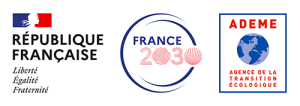For decades, industry has learned to reduce its impacts. But in the era of climate disruption, reduction is no longer enough. We must regenerate : recreate positive cycles, strengthen resources, and repair ecosystems.
Regenerative industry is one that creates more value than it consumes — an economy of reconstruction: technological, social, and territorial. It’s a transition endorsed by the World Economic Forum, which calls for a shift from a logic of sustainability to a regenerative economy, one capable of restoring rather than merely compensating.
Water : a strategic resource and a lever for stability
Advanced water technologies – such as the cryo-separation process developed by Seawards – now make it possible to produce clean drinking water without chemical agents, without pollution, and without impact on the sea.
Each liter of fresh water produced becomes a factor of stability :
- it supports life and biodiversity,
- it strengthens water autonomy,
- it contributes to social and economic peace.
According to UN Environment, more than 21,000 desalination plants are currently operating worldwide.
They produce 142 million m³ of fresh water every day, but discharge an equivalent volume of toxic brine back into the sea. This is the paradox of the current model: producing water while impoverishing its source.
Desalination – no longer a remedy, but a resource
The dominant process, reverse osmosis, relies on high-pressure filtration — energy-intensive and generating hypersaline waste.
These residues, laden with heavy metals and chemicals, threaten biodiversity and exacerbate ocean acidification.
Cryo-separation changes this equation. By reproducing the natural phenomenon of freezing, it separates fresh water from salt without membranes, without chemicals, and with an optimized energy footprint.
A process inspired by nature – designed to last.
The Rhône-Mediterranean-Corsica Water Agency estimates that renewable water resources could decrease by 40% by 2050 in the Mediterranean basin.
In this context, rethinking the industrial model of water is becoming a strategic priority.
An innovation born on the Mediterranean coast
It is on the shores of the Mediterranean that this technology was born – a territory both fragile and pioneering, where the sea is at once a constraint and an opportunity.
Here, desalination is not an act of defiance, but an alliance between industry and nature.
A way to act with the sea, not against it.
The work of the Plan Bleu reminds us that demographic and economic pressure on the Mediterranean coastline demands new models of coexistence between human activity and the preservation of life.
Toward an industry that regenerates territories
Clean desalination paves the way for a regenerative industry – production that gives back more than it takes.
This is the model that Seawards stands for:
- a technology that protects ecosystems,
- an innovation that drives economic and social renewal,
- a vision of the sea as a living resource.
Because in the face of climate change, the future of water depends on our ability to produce without destroying.
